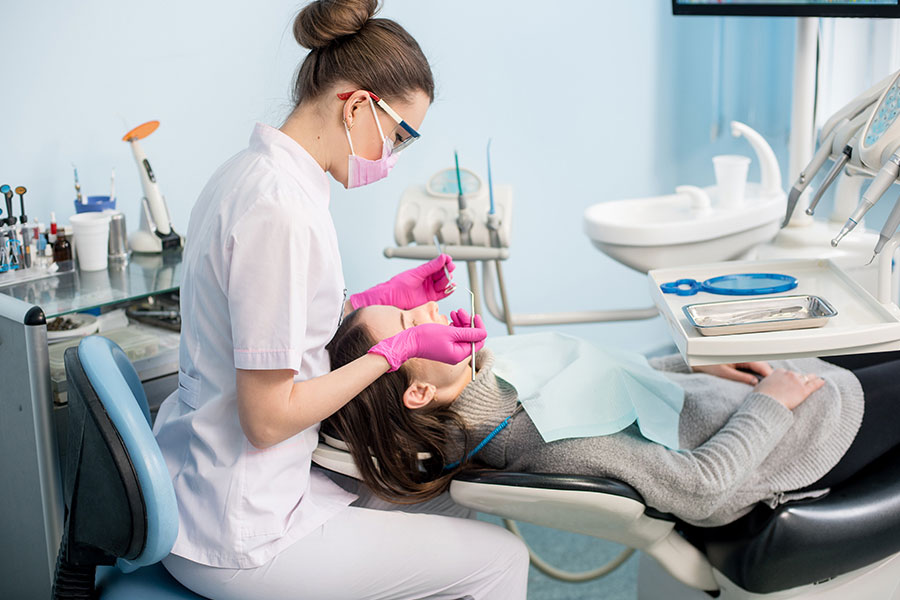Enter your email to receive the CareQuest newsletter:
In the News
Our “In the News” section shares oral health highlights from the world of media, including online news sites, magazines, and TV. Here, you’ll find coverage on a variety of topics, including medical-dental integration, oral health research, policy changes, and health equity. Come back often to see how CareQuest Institute’s work is influencing the world of oral health.

Media Contact
Interested in expert comment, interviews, or speaking opportunities?
Stay Informed
Get the latest oral health news, stories, resources, and education in our newsletter. Check out a sample newsletter.
Press Releases
Stay up to date on CareQuest Institute news, issues, and research.
Blog
Explore stories, perspectives, and innovations about oral health.
Dental pain is a common concern during pregnancy. A person may develop dental pain during pregnancy because of pregnancy-related changes or because of pre-existing dental health issues.Read the full article here.
Access is especially tough for kids in rural areas or whose families don't have a lot of money. Some dentists say a new statewide ban on adding fluoride to drinking water affects these communities the most.Read the full article.
The Florida legislature extended its 2025 session but failed to pass the state budget or expand Medicaid dental coverage. The SMILES Act (HB 975/SB 1048) seeks to improve Medicaid dental benefits by covering routine care and increasing dentist reimbursement rates. Currently, Florida Medicaid primarily covers dentures and extractions for low-income parents, adults with disabilities, seniors and pregnant women, leaving preventative care largely inaccessible.
The hundreds of veterans who visited Houghton’s annual VetFest on June 11 may have noticed something new. The Upper Great Lakes Family Health Center set up its mobile dental unit to provide free oral cancer screenings and referrals to veterans.Read the full article here.
A powerful TIME investigation exposes how misinformation, policy rollbacks, and systemic neglect are leaving millions without access to basic dental care.The most vulnerable communities are paying the price as fluoride is removed from water systems and Medicaid benefits are at risk. CareQuest Institute is calling for urgent action to treat oral health as essential to overall health.Read more in this article.
As federal funding for health care faces growing uncertainty, dental leaders are raising a critical question: How will shifting policies impact access and care delivery? Becker’s Dental & DSO Review breaks down the latest developments with our Senior Director of Public Policy, Melissa Burroughs, and what they mean for dental practices nationwide.
As state budgets face severe impacts, CareQuest Institute is deeply concerned that optional dental benefits will be the first services cut. Oral health is crucial for overall well-being, and cutting these benefits would be a significant setback. Read more about the ongoing discussions in DC ahead of the Medicaid markup hearing in Fierce Healthcare.
Dental organizations, including CareQuest Institute, are continuing to back community water fluoridation as the future of this practice comes under threat at the federal level.Read more in Becker's Dental Review.
Of the more than nine million veterans who are eligible for medical care through the VHA, approximately 1.8 million are also eligible for dental care. Among veterans eligible for dental care, a third use that benefit annually—inclusive of the community care network (CCN). The CCN is a private network of VA-affiliated providers available to eligible veterans who cannot get care in a VA facility due to long wait times or geographic distance. The PACT Act of 2022, considered to be the largest health care and benefit expansion in VA history, increased dental eligibility by 330,000 veterans.
According to CareQuest Institute for Oral Health, in 2023 nearly 68.5 million adults in the US lacked dental insurance. Based on the organization's State of Oral Health Equity in America survey, these projections may further surge by the end of 2023 because of the loss of coverage from other household members and the process of Medicaid redetermination. More adults are currently uninsured for dental care which leads to a rise in the number of people needing these plans.